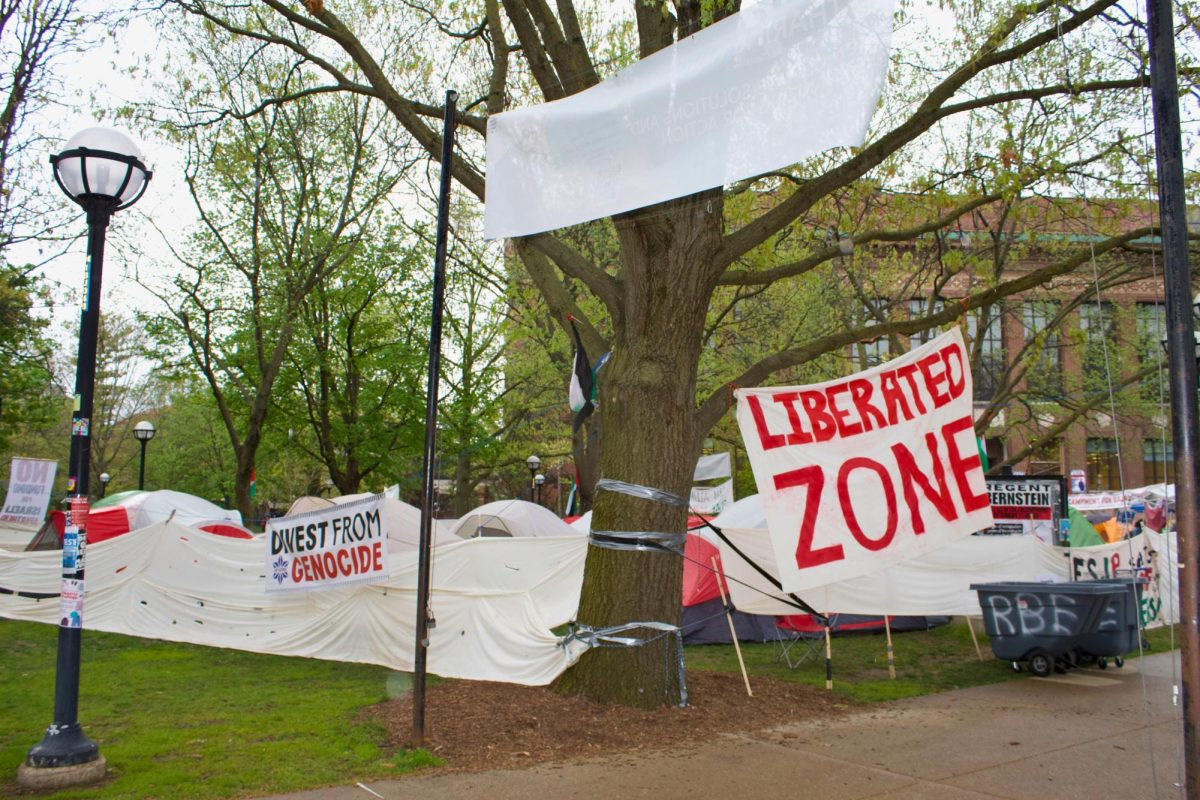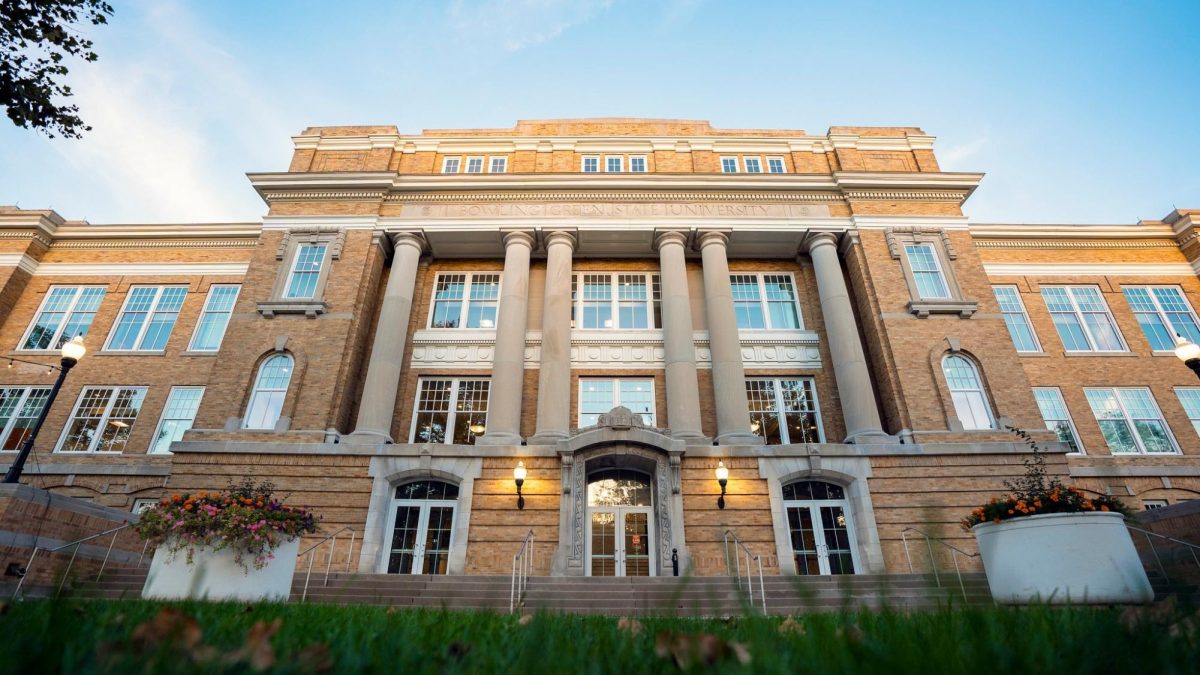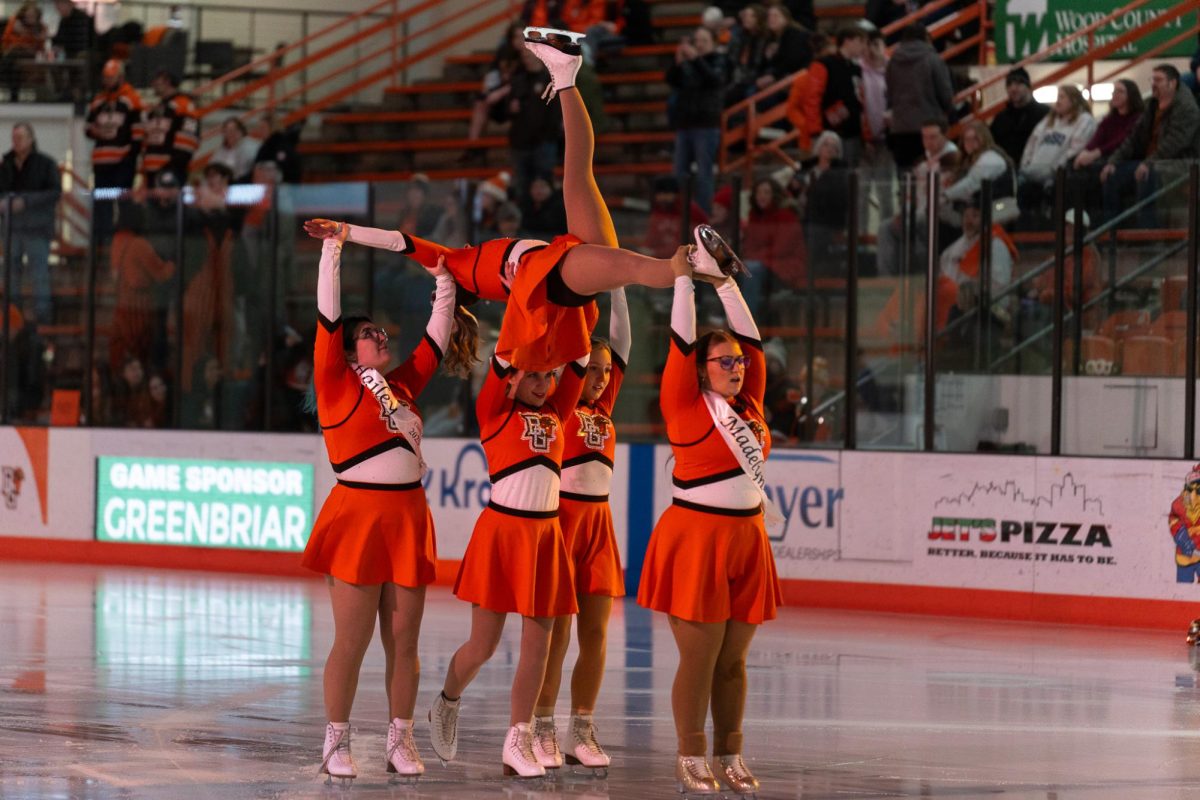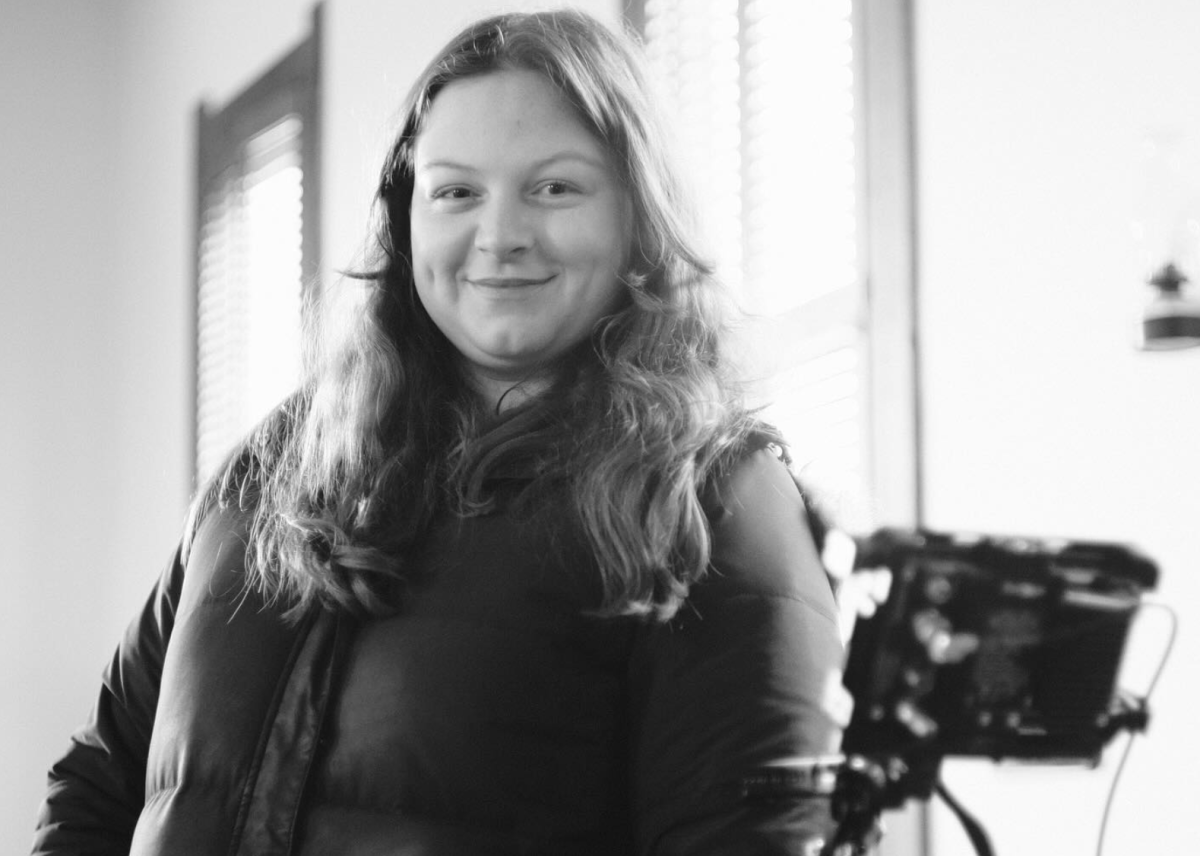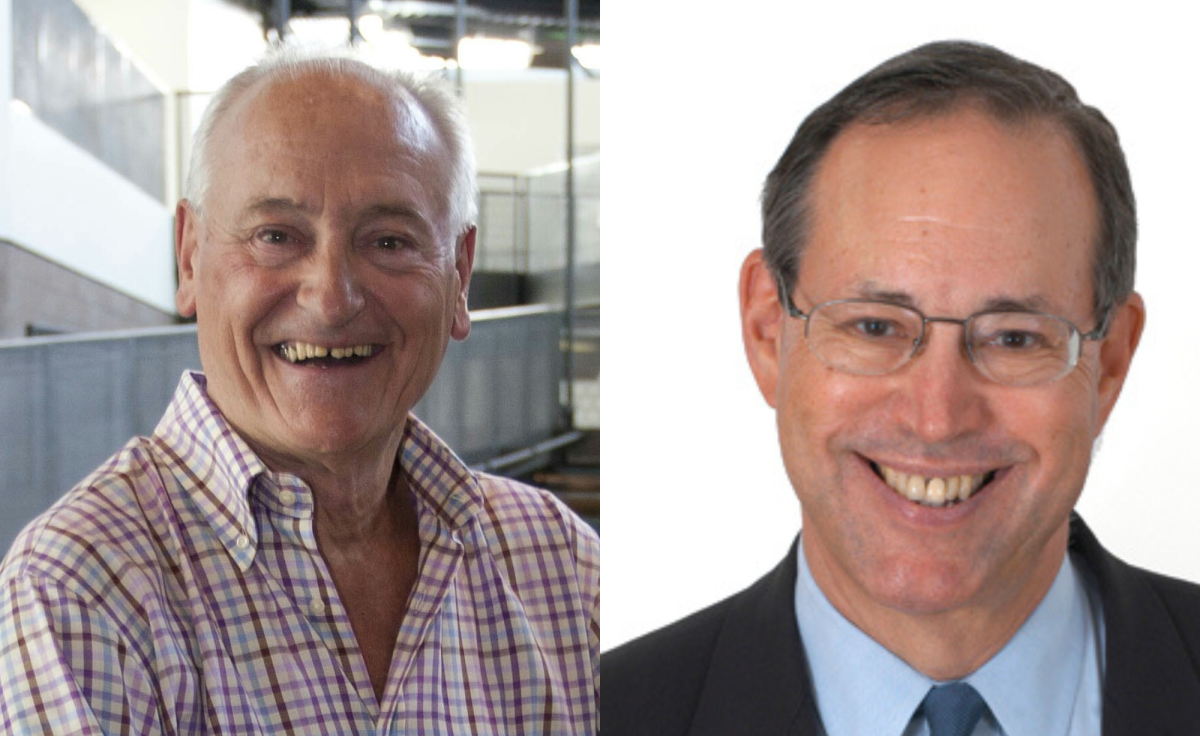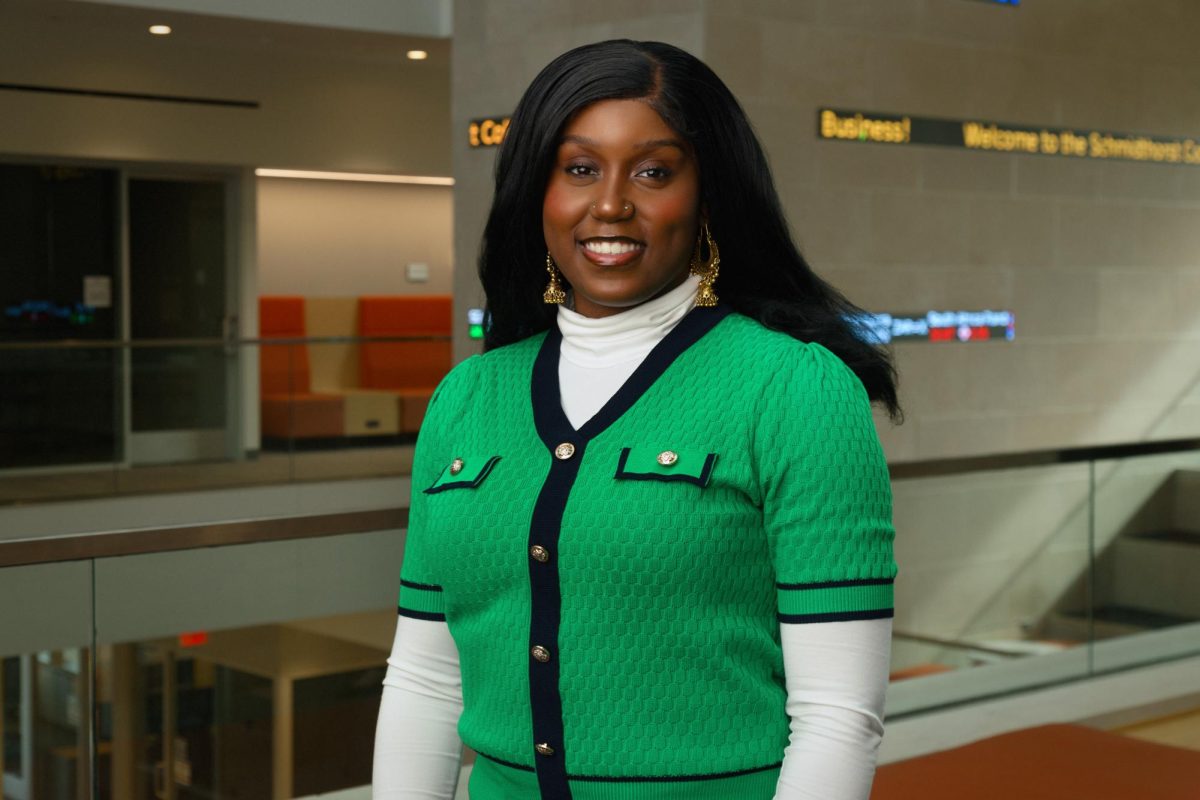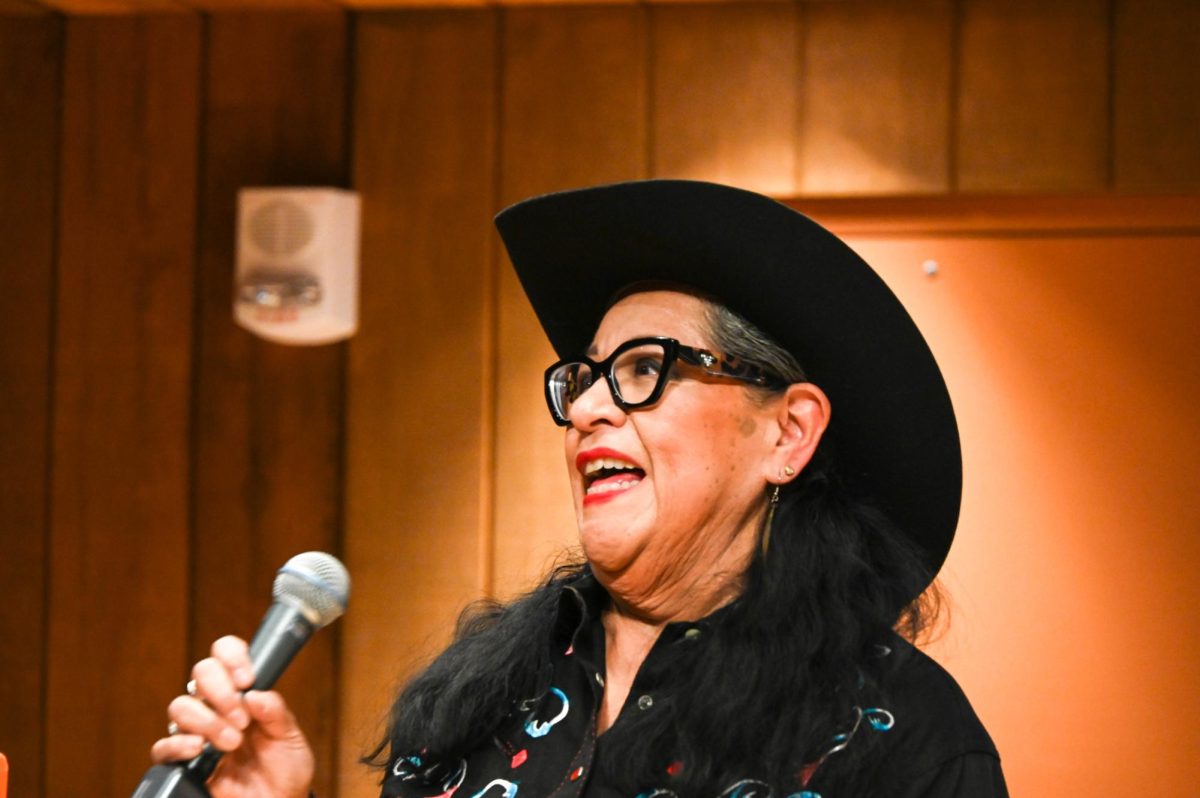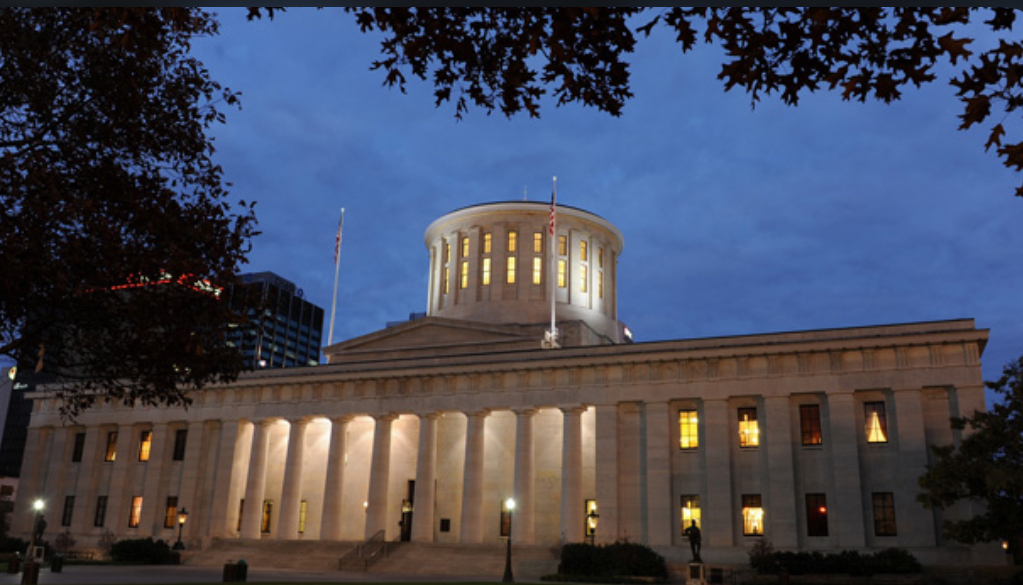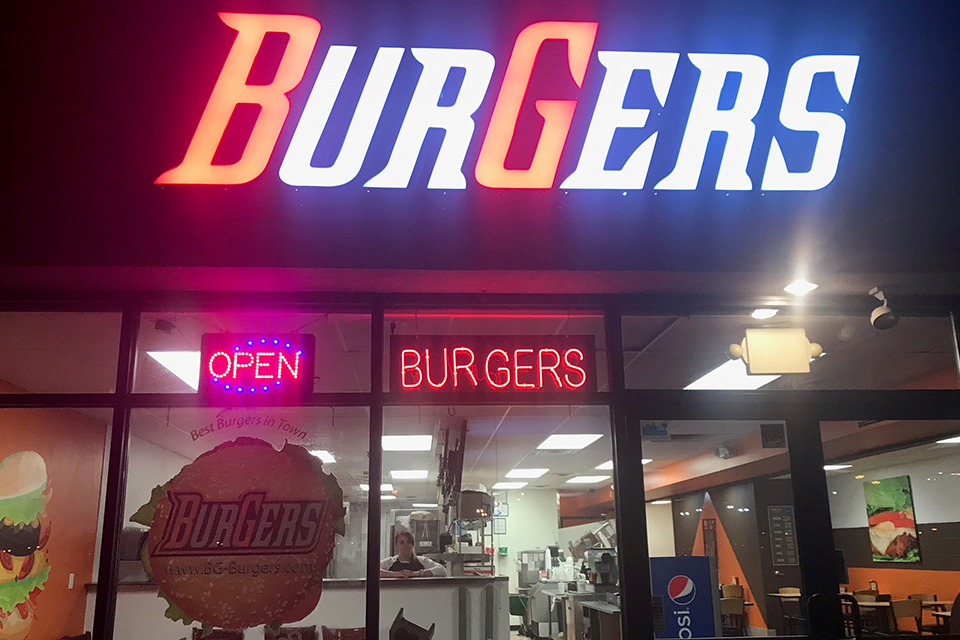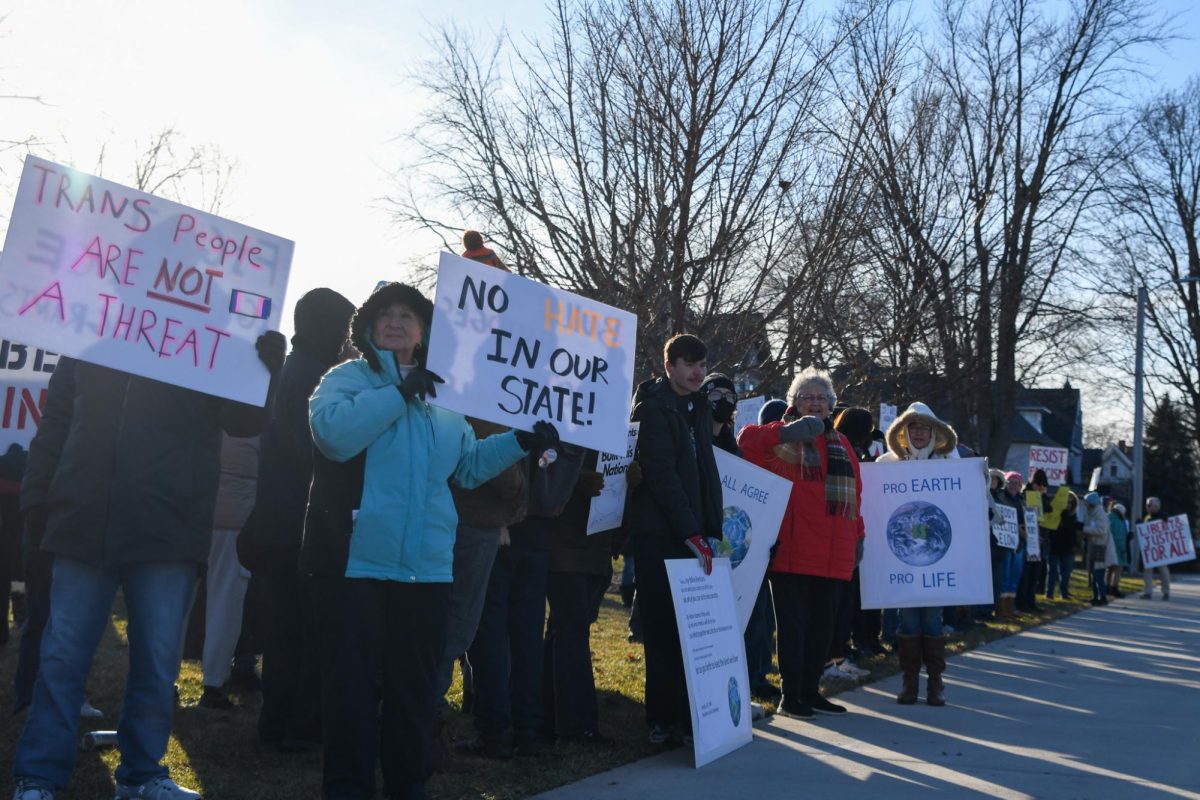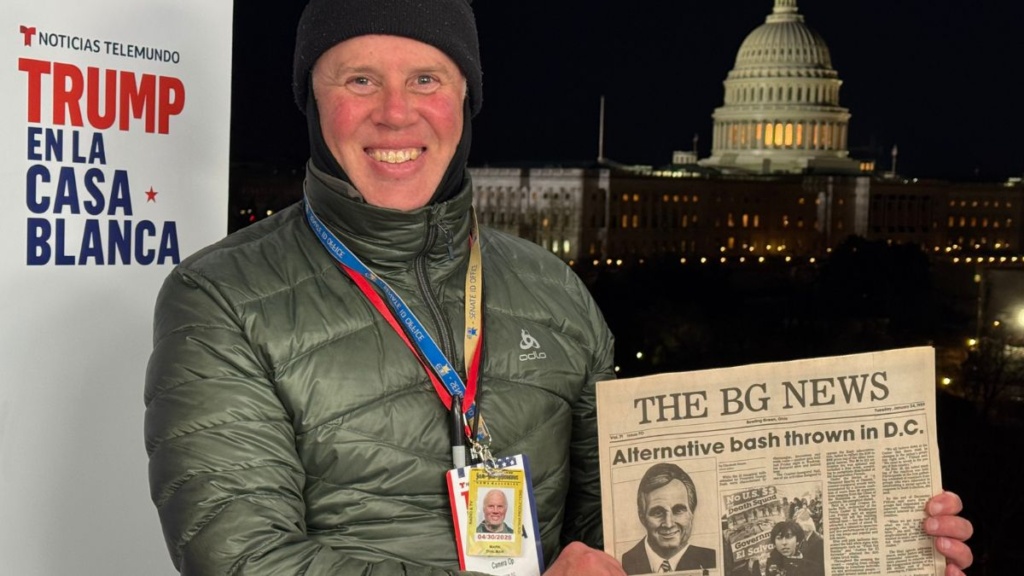Members of the BGSU community are speaking out about the Islamophobia they say they’ve faced amid a wave of protests on American college campuses from pro-Palestinian activists.
While BGSU has not seen protests on the same scale as other college campuses in the state including Ohio State University and Miami University, Muslim student leaders on campus say the concerns about discrimination raised by activists at other universities are similar to those they face in Bowling Green.
While BGSU President Rodney Rogers issued a university-wide email on Oct. 12, 2023, denouncing the Oct. 7, 2023 Hamas attacks on Israeli civilians, the university has not issued any official statements condemning the 37,202 Palestinian casualties caused by Israeli forces since October.
This silence from BGSU officials is something Mohammad Mizanur Rahman, president of BGSU’s Muslim Student Association and Taufiq Al Makmun, the organization’s secretary, said is unacceptable.
“On October 7th, the BGSU President sent out a public message for the barbaric and unjustified violence committed against innocent civilians, a feeling we all share. But the President and BGSU Leadership have been silent on the deaths of over 35,000 innocent civilians in Gaza, the majority of whom are women and children. We ask ourselves, if this is not tacit Islamophobia, then what is this? Where the pain of one innocent person is deemed greater and worth noticing than others. This completely goes against the ethos of BGSU,” BGSU’s MSA said in a statement provided to Falcon Media.
MSA members said in a statement that they feel “there is inherent Islamophobia in the media portrayal, police brutality and the university administration’s harsh response to student protests. This may easily incite Islamophobia, bigotry and violence against pro-Palestinian voices, including the Muslim community,” they shared.
Student and faculty activists at other Ohio universities have also been protesting the violence against Palestinian civilians.
“The Muslim community in Toledo, as everywhere else- is absolutely behind our young women and men across American college campuses and now worldwide. These students, Muslim and non-Muslim, are showing us that they dare to live by the ethics and ideals of human worth and decency that we teach them in high schools, colleges, mosques, churches and synagogues,” said Ovamir Anjum, the Imam Khattab Endowed Chair of Islamic Studies at the University of Toledo.
Anjum said his daughter, who attends Ohio State University, “escaped being arrested by hair’s breadth” when Muslim students engaged in prayer were shielded by fellow protestors who protected them from police when OSU President Ted Carter called for the removal of the protest encampment on April 25.
Not all protestors escaped as unscathed as Anjum’s daughter, however.
Dalal Shalash, founder of the Columbus-based Palestinian Liberation Movement, said during an April 29 Columbus City Council meeting that she received a concussion during her arrest by the Columbus Police Department on April 25, and that she witnessed multiple protestors whose hijabs had been removed during their arrests—an act viewed as a violation of Muslim women’s bodily autonomy.
“When we arrived at the jail, there was three hijabi woman amongst us, two of which their hijabs were forcefully removed, one of which, her hijab wasn’t returned until I made a scene. And all of which were forced to take mug shots without their hijabs,” Shalash said.
Ohio State Representative Munira Abdullahi, who came to support students at the Columbus event, left with bruised ribs after she was grabbed by her hijab and pushed to the ground by police.
At least 41 pro-Palestine protestors were arrested at OSU on April 25.
An anonymous Columbia University student who participated in the Columbia University Apartheid Divest (CUAD) encampment shared their story with Falcon Media.
“Within the first couple of days, the word of the encampment spread quickly and support grew. What looked like a collection of tents from the outside was really a harmonious civilization that included prayers for all faiths, the celebration of Passover and Shabbat, music, art, teach-ins, performances and films,” they shared.
“There was a call-and-response chant that was used during most evening assemblies at the encampment, most often when there was a threat of police presence. The speaker asks the question, ‘Who keeps us safe?’ and everyone responds in unison, ‘We keep us safe.’ Historically, law enforcement can not be trusted to protect minorities and people of color. As a result, we have had to plan accordingly for their lack of competency,” the Columbia student said.
In the face of potential abuse, student protestors united to safeguard one another.
“Our respective fields of study play to our strengths. Journalism students film and document police brutality. Student workers and faculty, who are legally protected by the union, form blockades. Student medics are on duty at all times. The CUAD legal team keeps us informed of our rights. We create spaces for mental and emotional support. Ultimately, we are safe in spite of, not because of, the NYPD. We collectively protect each other against the NYPD and against the Columbia administration. The people, united, will never be defeated,” the Columbia student shared.
Due to student protests, Brown University, Northwestern University and the University of Minnesota have promised to vote on a divestment deal in the 2024-2025 academic year.
USG president Heidi Gasser shared BGSU’s current plans for divestment from Israel.
“If students want to write a resolution, we will support that and we will help them through that process. And Elyse (USG Vice President) and I, on a personal student-leader level, are interested in trying to gather what kind of support we have on campus for a ceasefire resolution. And then moving forward with that,” she shared.
When it comes to divesting funds, Gasser said, “From what I’ve seen in our visible stock portfolio, it looks like we don’t have anything that clearly lists investment in Israel weaponry manufacturing. I cannot fact verify that.”
USG President Gasser and Vice President Elyse Adrian hear that there is interest that students want to speak out about the pro-Palestine cause and see USG’s function to support grassroots student voices coming together.
“I’m extremely proud to see the countless encampments that have been created on campuses throughout the nation. I believe the outspokenness of Columbia students has contributed to a wave of progress in our fight for justice, but ultimately, we owe all credit to the people of Gaza,” the Columbia student said. “Their continued courage and resilience has sparked change globally and empowered us and other students to persevere in the face of adversity.”
After two weeks the divestment encampment was disassembled when Columbia University President Minouche Shafik granted the New York Police Department (NYPD) access to sweep the grounds after protestors took Hamilton Hall. Protestors renamed the building ‘Hind’s Hall’ after they occupied it in honor of Hind Rajab, a six-year-old Palestinian girl killed by Israeli forces on January 29 in Gaza City. Hundreds of NYPD officers then arrested protestors on April 30.
“It’s been an overwhelm of emotion, however, our spirits will not be broken. We continue to uplift and strengthen each other and remain steadfast in our ultimate goal of divestment,” the Columbia student shared.
Closer to home, Anjum agreed.
“[Protestors] see the innocent children, women and men of Gaza being massacred by an occupying force, backed by our tax dollars and our military-industrial complex’s blessing, and they refuse to accept this carnage. This is humanity at work, which the Muslim community is proud of,” Anjum said.
BG Falcon Media published an article in March highlighting antisemitism that can be read here.


